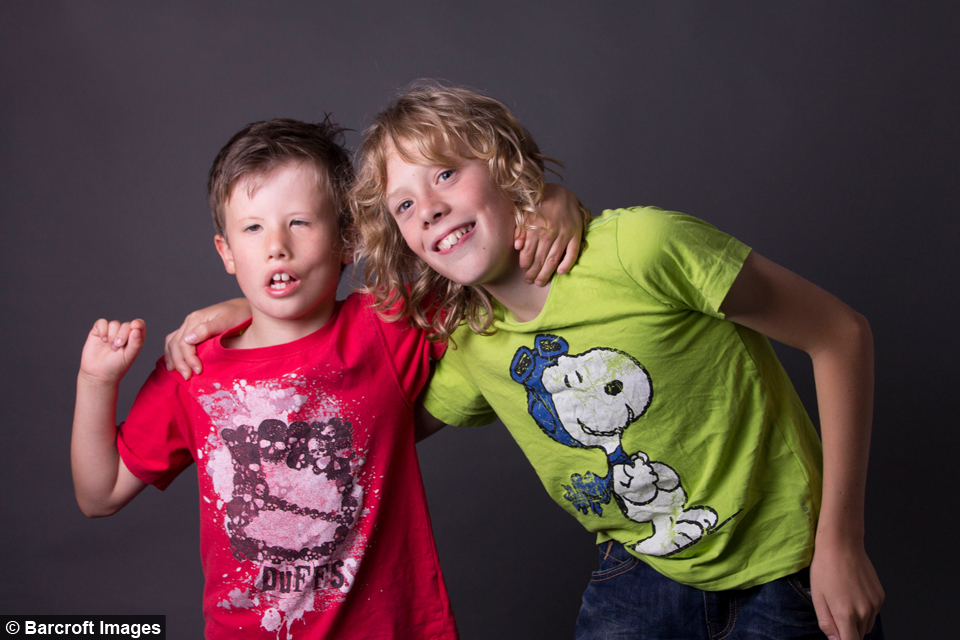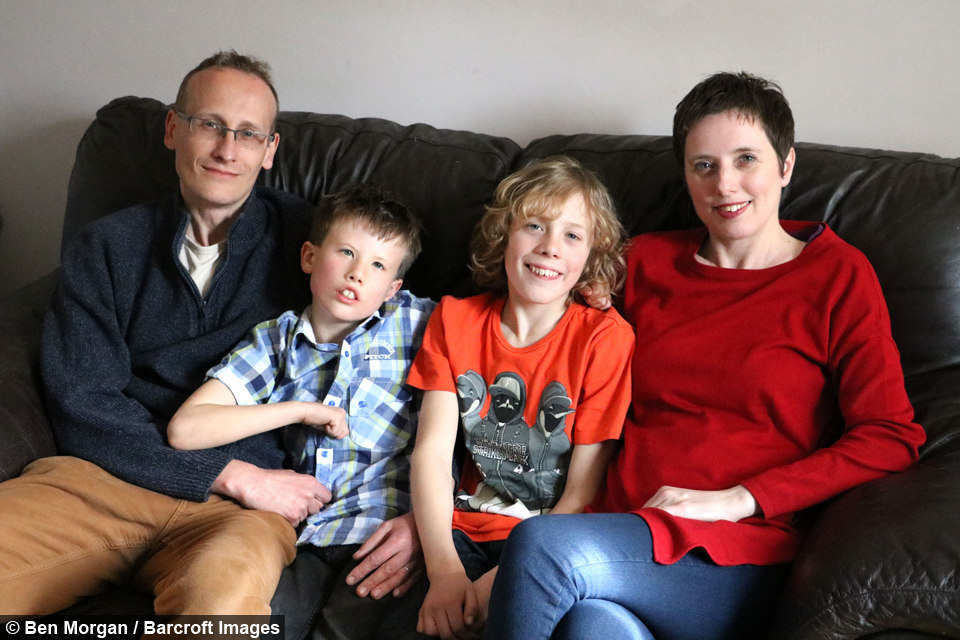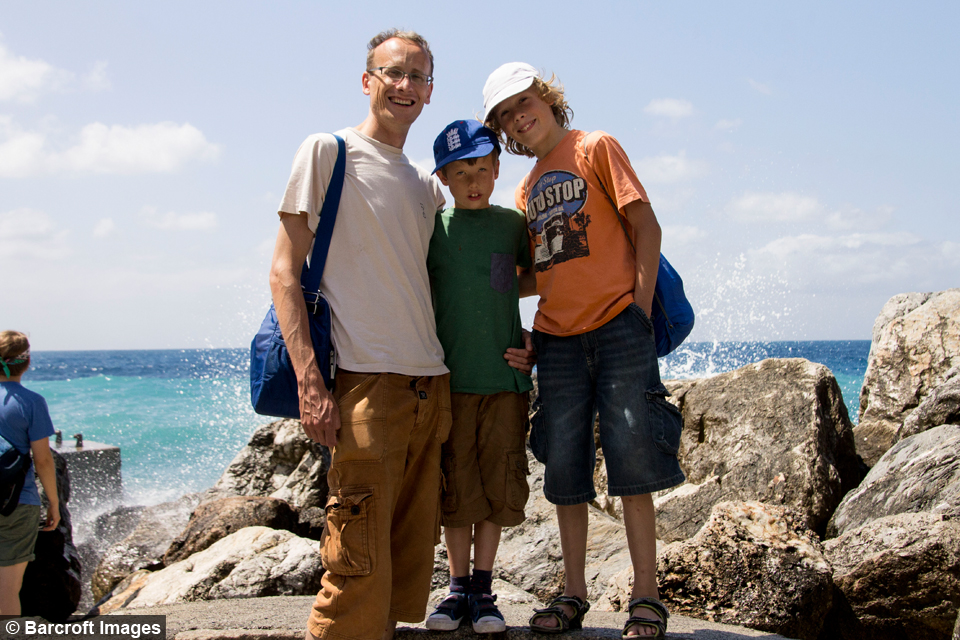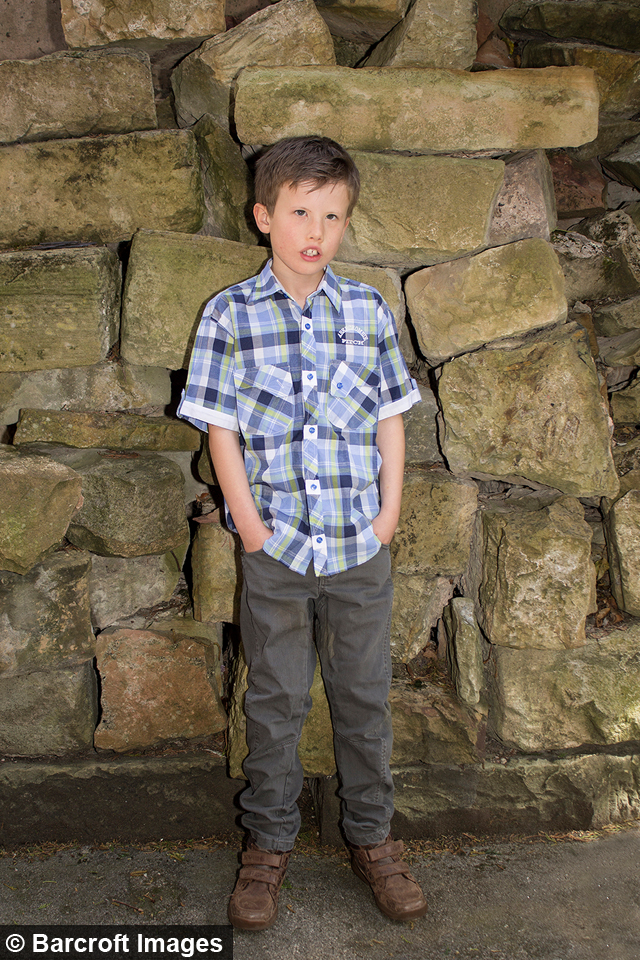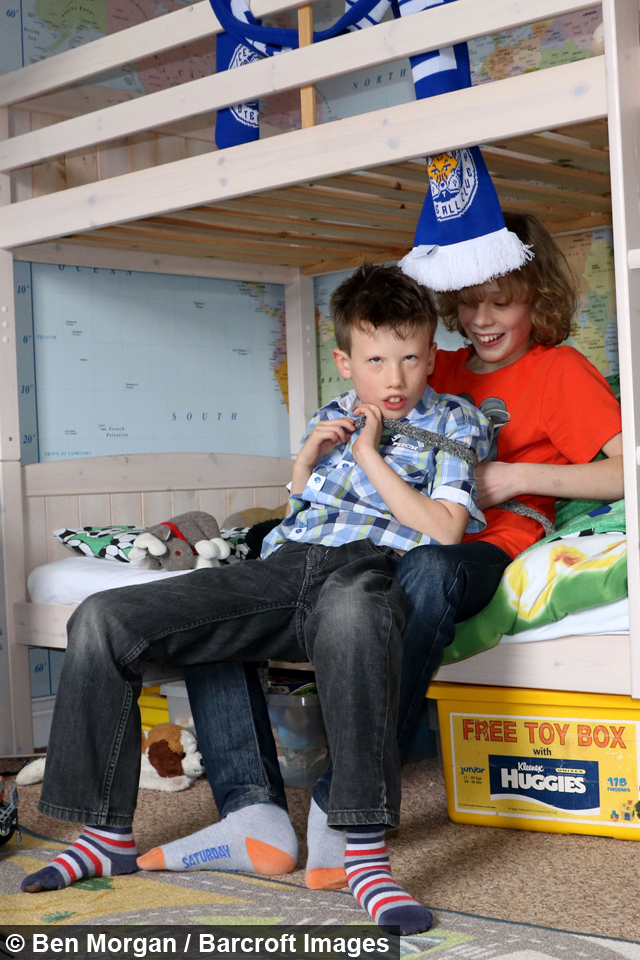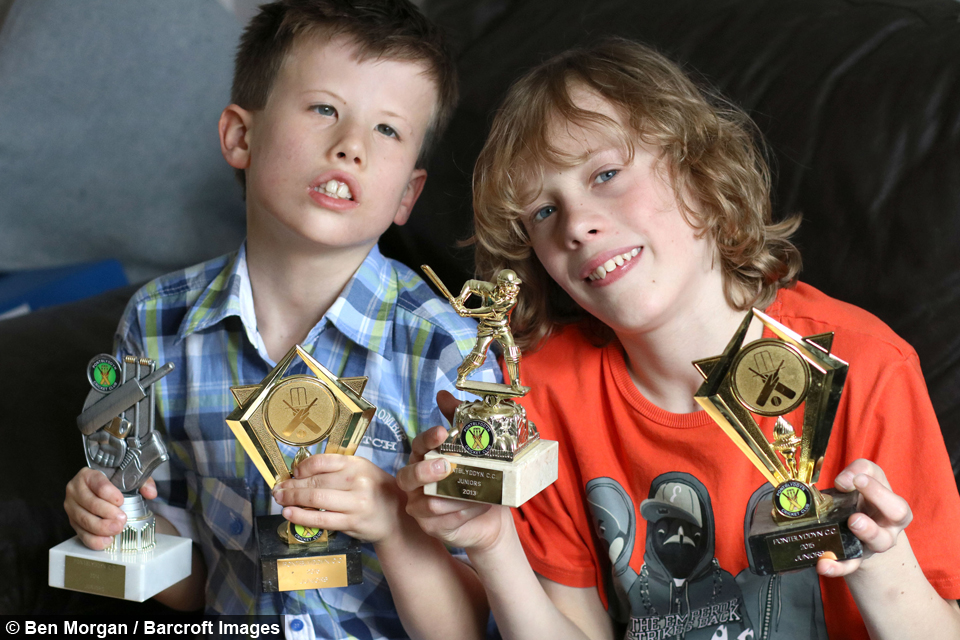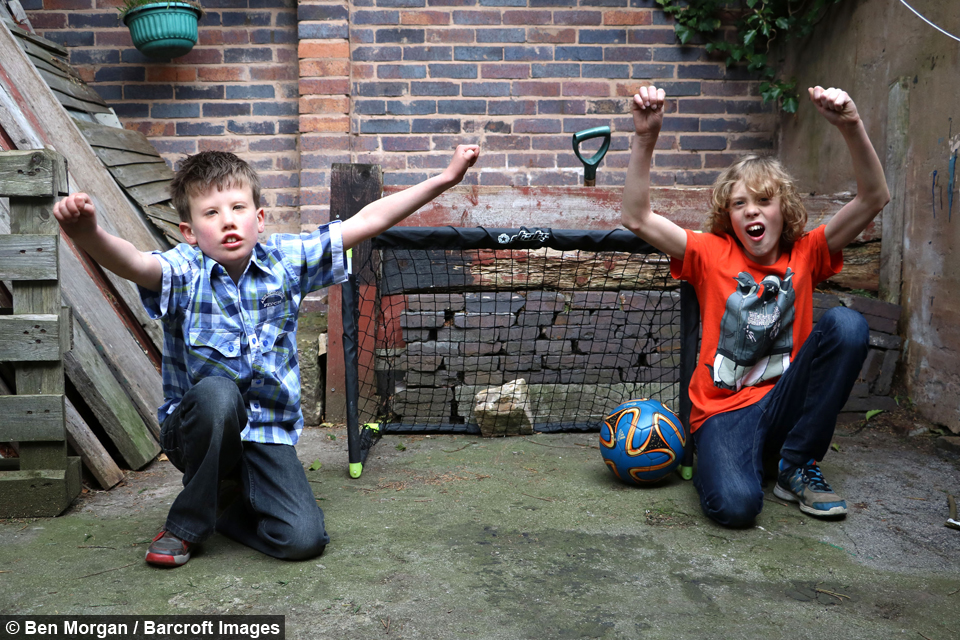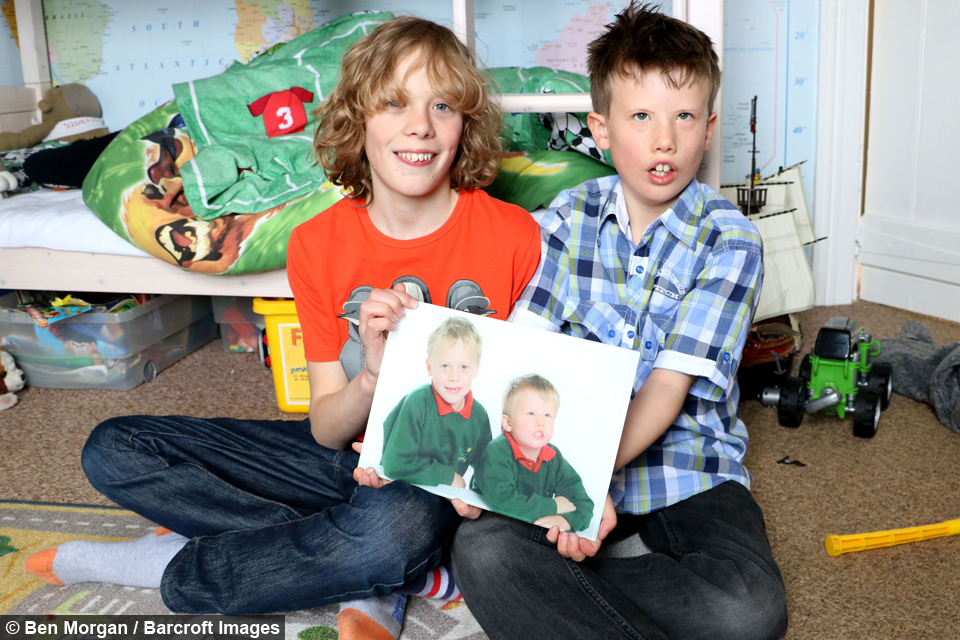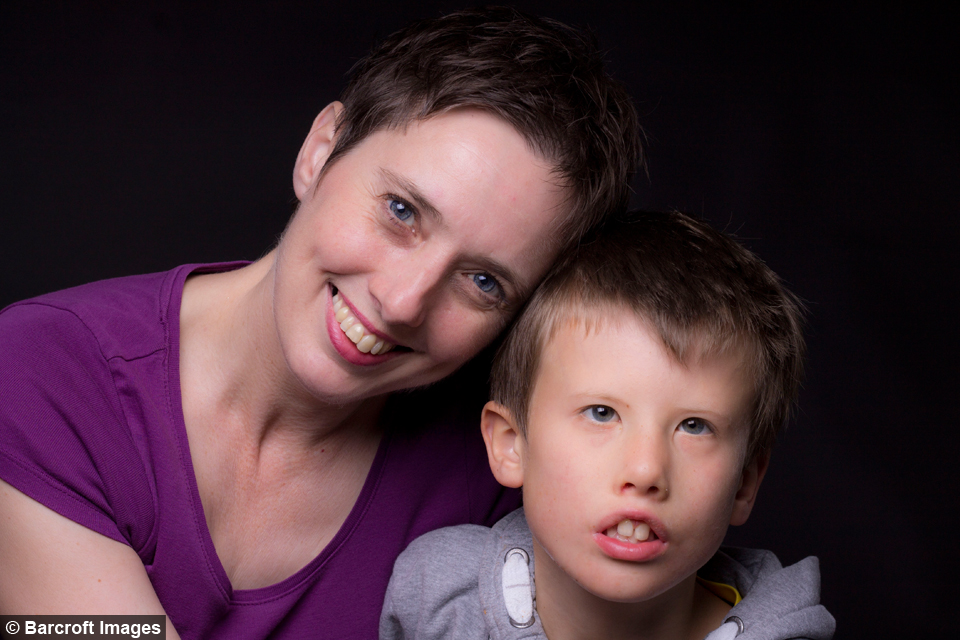Bright Future: Boy with facial paralysis learns to talk
By Aneira Davies
Scroll down for the full story
Videographer / director: Ben Morgan
Producer: Tom Midlane, Nick Johnson
Editor: Jack Stevens
Isaac Hughes, from Mold, Wales, is like many other children his age – he loves to play football, enjoys spending time with his friends and play fighting with his brother. He also has a great sense of humour, is mischievous and likes to laugh at people falling over.
But Isaac has Moebius Syndrome - a condition which means he cannot smile or show emotion or, until now, speak.
He is one of only 200 people in the UK with the rare neurological disorder, which affects the cranial nerves and causes facial paralysis.
Like many people with Moebius Syndrome, Isaac has low muscle tone and small hands, which makes signing hard for him, but he is now able to walk unaided and after years of perseverance and intensive speech therapy, can now speak in sentences.
It has been one of the biggest challenges that Issac and his parents, Ceridwen and Phillip and his older brother Theo, have faced.
Since he couldn’t use his lips before this, Isaac found different ways of communicating with his family.
Once, when he wanted a lollipop, he signed the word for food and haircut, so his parents took him to a hairdresser who gave him a lollipop afterwards.
Phillip said: “That was one of the first examples of doing things.”
But Isaac’s hard work, often going over the same sounds time and time again, has paid off and he is now able to have conversations with his parents and 12-year-old brother Theo.
Ceridwen explained: “He went from literally not being able to say a word.
“The other day I was driving him to school and he was chatting and telling me about the rainforest and football.
“It was lovely because you could actually appreciate that.
“I suppose in some ways what rare disease has given us is the ability to appreciate the really small things, the little milestones that normally just pass you by.”
Ceridwen and Phillip, knew there was a problem with their son soon after birth.
Ceridwen said: “The first day was fine, but he had trouble feeding and by about two in the morning the doctors realised he really wasn’t able to latch on and feed.”
Doctors initially thought the problem could have been genetic or a chromosomal defect and it took eight months for Isaac to be diagnosed.
Ceridwen, 47, and Phillip, 40, felt unsupported at times and like they had to do a lot of research.
Ceridwen said: “Being a parent to a child with a rare condition where there isn’t the general information or knowledge out there is much harder.
“The isolation you get from that because you haven’t really got the support network in the same way that you have perhaps if your child has a got a common condition.”
Isaac's condition is so rare that doctors admitted that the parents would have had more information about it than them.
Ceridwen said: “The hardest thing for us was a consultant would say, ‘You know, you’re going to know more about this condition than us.’”
She said: “We had to build a team to basically treat him. That involved calling around speaking to consultants, finding out if they had ever treated anyone with this condition before. And pretty much putting the team together that formed a treatment group for Isaac.”
Determined to help other families in the same situation, in May 2015 photographer Ceri set up Same But Different, an organisation which raises awareness of rare disabilities through the arts.
The community interest company’s first series is “the Rare Project”, which features beautiful photographs of children with unusual conditions and their stories.
And now, Issac’s ability to speak is going from strength to strength.
Ceridwen said: “Whilst he’s still got an awful long way to go, he’s in a completely different place.
“We can chat to him, we can talk about his day. It makes a big difference.”
Due to the lack of emotion on Issac’s face, people think he has cognitive issues and that he is unemotional. But Ceridwen says he is a bright little boy.
She said: “He can show his emotions in other ways.”
Isaac attends a mainstream school and his classmates have been nothing but accepting.
Ceridwen said: “He’s got friends and they treat him totally like everybody else and that’s brilliant. That’s what we want.”
Phillip added: “They just totally accept him and he’s just one of the boys really.”
Isaac has the option of having surgery on his face enabling him to smile, but Ceridwen and Phillip are unsure about whether to go ahead.
The parents feel that it is an invasive operation that doesn’t necessarily give a natural looking smile.
At the moment, however, Isaac is happy with the way he is and both Ceridwen and Phillip hope that their son can live a normal life as possible.
Ceridwen said: “He’s very strong willed, very tenacious.
“I think my biggest dream is that he is happy and that he is accepting of how he is. He is going to have difficulties. He is probably going to find that people keep on making assumptions about the way he looks but ultimately he is Isaac and I want him to be proud of that fact.”
Phillip continued: “I just want Isaac to lead a normal life really. Just to, you know, be happy.”
Cerwidwen added: “It’s very important that people see the hope behind the condition.”
To find out more about Same But Different, an organisation which raises awareness of rare disabilities through the arts, visit www.samebutdifferentcic.org.uk
